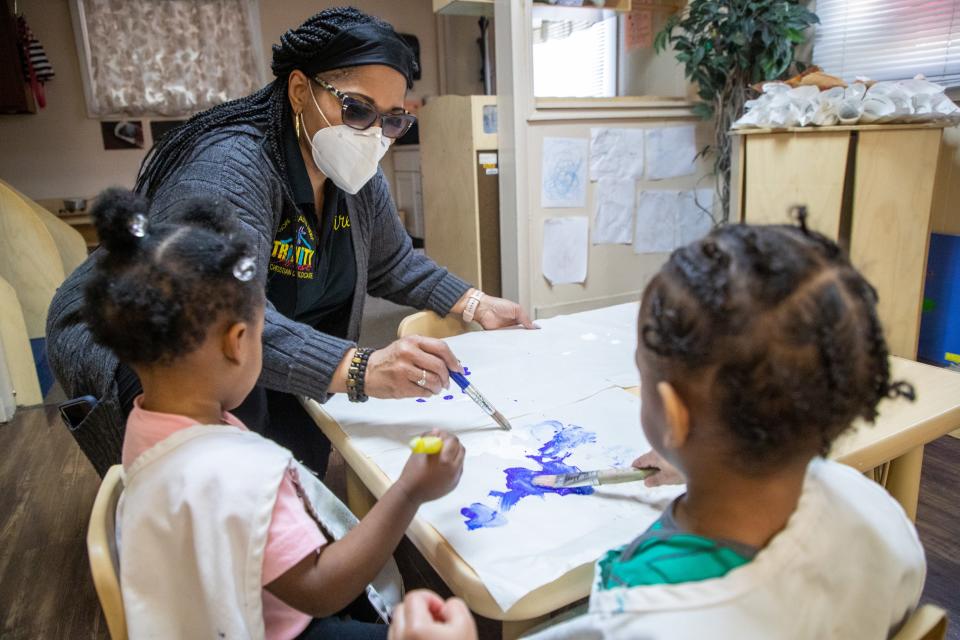Why Indiana’s workforce pipeline must begin with research-based early childhood education
Rarely does a day go by when we don’t hear of the economic development challenges facing our state because of a limited pool of skilled and educated workers. These workers meet the demands of the 21st Century economic environment where Indiana’s communities must compete with other states and countries for investment and economic growth.
The workforce issue remains a thorny problem for our great state, and while Indiana has an abundance of academic and workforce programs that address shorter-term goals, we must also keep our eyes on the longer term by building a stronger workforce pipeline that begins with our youngest citizens, our children. That starts with early childhood education, developing young minds and putting children on a path to lifelong accomplishment.

More:'Is that real?' How this Louisville preschool uses the outdoors to teach science
Nationally, only 40% of children between the ages of three and four were enrolled in early childhood education programs in 2020, according to the National Center for Education Statistics. Our nation must do better, and Indiana must lead the way by focusing on expanding access to early childhood development programs.
While childcare is available in Indiana, high quality, research-based programs are scarce. Indiana State University’s Bayh College of Education has long been among such high-quality programs that have attained the highest accreditation by the National Association for the Education of Young Children. ISU has committed to be the state’s leader in the important economic development area of early childhood education.
Growing the capacity of the Center and providing a research-based model for other communities with partners courageous enough to tackle this challenge is our goal. In a recent round of READI grants awarded to regions throughout the state, ISU received a commitment of $1 million to expand the capacity of our Early Childhood Education Center which is licensed by Indiana’s Department of Family and Children Services. The READI grant dollars are merely a start. Involvement of higher education experts, state support, and community support are required, and there must be a role for the federal government in this as well. ISU is working to bring all of these entities together to give our youngest citizens the start they deserve and need.
We can and must help parents as well. Directly related to our children’s access to self-realization and prosperity are the opportunities for Indiana parents and caregivers to reach their own professional and personal aspirations. ISU’s high-quality early childhood development programs will work with the entire family and caregiver units so that children and their families can take full advantage of their potential in our state’s burgeoning economic environment. Affordability is also key. Providing needs-based financial assistance to families to assist with paying for this high-quality care will help reverse trends of generational poverty.
More:Child abuse and future crime. Why we can't lose funding for early childhood home visits
Indiana State University is one of the largest employers in the Wabash Valley, and it serves the entire state as a magnet for talent and a great contributor of workers to the Indiana economy. In order to positively impact the state’s talent pipeline, we must leverage and build upon our faculty expertise in early childhood education. Providing this concentration of expertise is a critical piece to solving this workforce challenge in our home county that is wrestling with a 20% poverty rate, but it will also help communities throughout the state who stand to gain from our early childhood education model.
Indiana is counting on all of us to work creatively and collaboratively to meet this economic development challenge. Indiana State University is your partner in changing the trajectory of our youngest citizens and building an even stronger and competitive workforce.
Dr. Deborah J. Curtis is President of Indiana State University
This article originally appeared on Louisville Courier Journal: Indiana’s workforce pipeline must begin with Early Childhood Education

